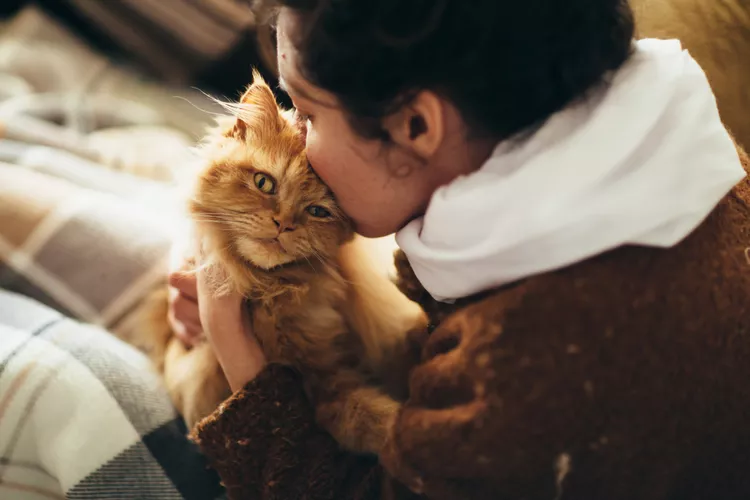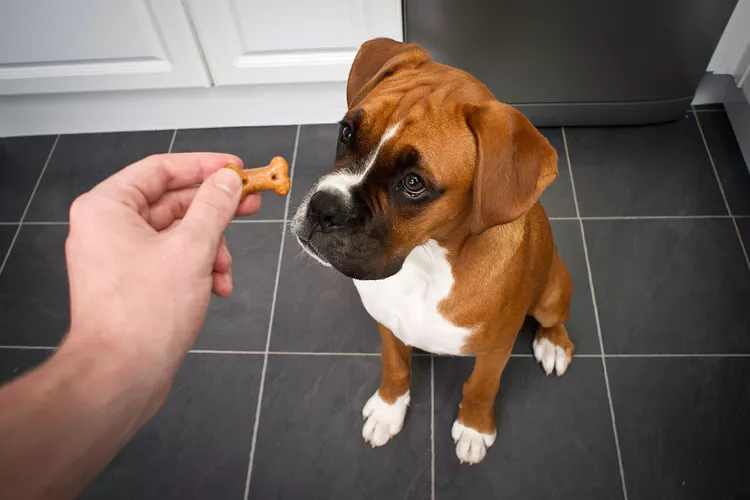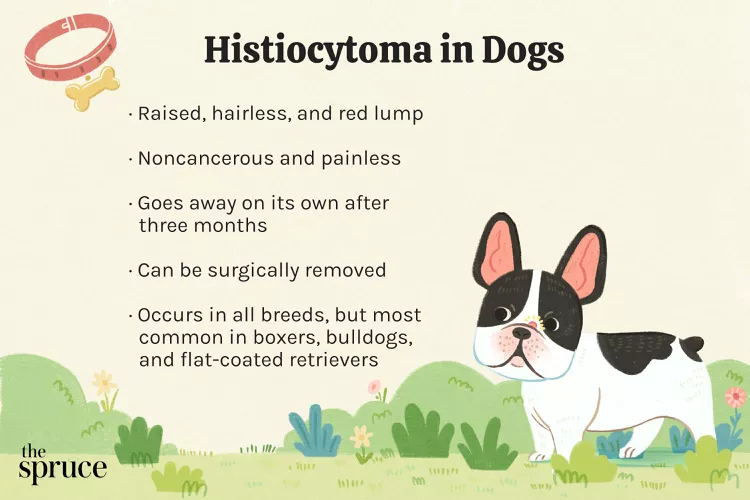
Any dog owner will tell you, dogs can have some quirky behaviors. Things like obsessively devouring socks, trancing under curtains and houseplants, compulsively barking at reflections and light, and yes, even licking your ears. Though ear licking can be a seemingly strange behavior, it's a relatively benign behavior for your dog to develop. So if you're a little weirded out and wondering, "why does my dog lick my ears?", read on for a few possible explanations.
Dogs can become infatuated with ear licking for a variety of reasons. All dogs, whether they are a hairless Chinese crested or a stocky Neapolitan mastiff, are descended from wolves, which are pack animals. Wild animals that live in packs or family units often have complex social structures and just as complex social behaviors to reflect that structure. Oftentimes grooming one another is one of these behaviors that helps give the unit structure.
We've all had that itch we just can't quite scratch. While humans can take care of that hard-to-reach spot with a mass-produced back-scratcher, animals can't. For pack animals or those that live in family units, this is where grooming behavior can come in handy. Almost in a literal "you scratch my back and I scratch yours" exchange, animals in family or pack-structures will groom other animals in areas that otherwise may be difficult to reach. While our ears aren't particularly difficult of an area to reach, your dog may lick your ears as a way to thank you for all the ear scritches you bestow upon them.
In wolves, dogs, and other canid species, grooming can be a sign of submissive respect. A wolf of a lower social rank may groom a wolf of a higher rank as a way to show that animal that they submit to their rank and authority in the pack. Your dog may lick your ears as a way to show that they respect you as a valued and high-ranking member of their family unit. This is especially likely to be the case if you see other classic submissive behaviors, such as crouching down low, exposing their soft belly, and tucking their tail.
Dogs will also groom one another as a way to communicate that they are feeling contented, safe, and that they care for whomever they are grooming. When you dog licks your ears they may just be trying to tell you that they love you and are comfortable when you are around. You can know your dog is licking your ears for this reason if they have a soft face (that is, no tense muscles along the brow line or the muzzle) and relaxed body positioning.
We all know that dogs explore their environment with their noses. It's why they make such great search and rescue animals. What some folks don't realize, though, is that dogs also explore with their mouths. Tasting their world can give them information they may not get from a simple sniff. This is just one reason why puppies like to chew on your furniture, shoes, and even electrical cords. If your dog is infatuated with licking your ears they may just be trying to glean some information about where you've been or what you've been doing.
It's no secret—dogs like to eat some foul things. This can include things like earwax. As gross as it may sound, some dogs just like the taste and the saltiness of earwax. Your dog may like to lick your ears regardless of how clean they may actually be, because, for them, it's delicious.
One final reason your dog may suddenly become obsessed with ears is an underlying medical issue. If another pet in your home gets an ear infection, the smell of their ears can change. Your dog can pick up on this change in smell, which can lead to them investigating the offending odor. It can also stimulate them to lick the ears of the other animal in the same way that your dog will want to lick their own wounds.
For something that's oftentimes relegated to a simple behavioral quirk, there are countless reasons you dog may want to lick your ears. Usually, though, ear licking is simply that: a behavioral quirk.

Cute Pictures & Facts About Calico Cats & Kittens
Learn fascinating facts about calico cats, including photos, the genetics behind this color combination, and common folklore and traditions.
How to Prevent Cat Separation Anxiety During Vacations
Discover why cats develop litter box problems and cat behavior problems when you go on vacation and what you can do about it to help them.
Cat Behavior Changes That Might Mean Something's Wrong
Cats' behavioral changes may indicate problems—or they may mean nothing at all. Explore causes of odd behavior and what to do about them.
Lhasa Apso: Dog Breed Characteristics & Care
The Lhasa apso is an ancient breed from Tibet that was bred to be a watchdog. Learn about its history, health, exercise needs, and more.
Reasons Why Dogs Run Away and How to Stop It
Dogs can escape, especially if they’re bored and not properly contained. Here are some techniques for stopping your dog from running away.
Can Dogs Get Depression? How to Help Your Sad Dog
Can dogs get depression? Learn about the signs of depression in dogs and find out how to help your sad dog.
How to Stop Aggression in Dogs
Dog aggression can be a serious behavior issue for pet owners. Learn how to stop aggression in dogs before someone gets hurt.
How to Stop Your Dog From Growling
A growling dog can soon become even more aggressive. Reduce the noise and potential for a dangerous situation with some of these techniques.
Why Do Dogs Dig Holes? How to Stop Your Dog from Relandscaping Your Yard
Dogs have been digging holes for centuries and for many reasons. Whether they’re bored or want to cool off in the dirt, here are the top reasons why dogs dig holes.
Dog Treat Varieties
Learn about the different types of dog treats on the market and decide which are best for your dog.
Can Dogs Eat Asparagus?
Dogs can eat asparagus, provided the vegetable is cooked plain and cut up for them. Seasonings, salt, and butter make it unhealthy for dogs.
Histiocytomas in Dogs
A histiocytoma is a type of benign (non-cancerous) skin lump that usually affects young dogs. Learn the causes, treatment, and prevention.
Why Is My Dog’s Eye Swollen?
If your dog's eye is swollen, she may need veterinary attention. The inflammation could be caused by allergies, an injury, or even a tumor.
Common Bugs and Parasites Found on and Inside Dogs
Learn about common types of parasites in dogs. Find out how to treat and prevent parasites to keep your dog, your family, and yourself safe.
Exploring the Different Types of Pet-Friendly Beaches
Are you looking for pet-friendly beaches? Learn about the different types of pet-friendly beaches, their locations, and tips for visiting them with your pet.
10 Obscure, Little-known Canine Facts in Honor of National Dog Day
With National Dog Day upon us, it's time to celebrate everything about our favorite pets—even the weirder stuff. Here are 10 obscure facts about dogs you probably didn't know.
Kitten Development From 3 to 6 Months Old
Kittens grow and change a lot during their first year. Find out what happens between the ages of three months and six months old.
95 Siamese Cat Names
Our list of Siamese cat names has diverse and fun options to help you choose the ideal moniker for your elegant and lovable feline companion.
What to Buy for Your New Cat: A List of Essentials
Before you bring your new cat or kitten home, there are a number of things to collect or buy so your cat will feel welcomed like a family member.
The 6 Best Cat Nail Clippers of 2024 for a Safe Trim
Clipping your cat's nails can save your furniture and keep your kitty comfortable. We asked veterinarians for their cat nail clipper recommendations.